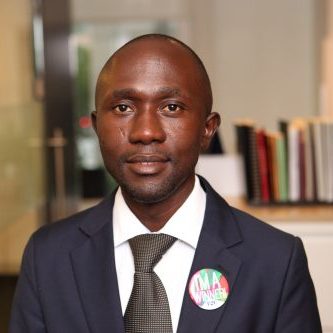Integrating COVID-19 Vaccination Services into a Universal Health Care System in the Philippines
Integrating COVID-19 Vaccination Services into a Universal Health Care System in the Philippines
Published on July 7, 2023

This post explores service delivery and financing elements of integration in Iloilo Province, Philippines, where COVID-19 vaccination was integrated into the implementation of the Primary Care Benefit Package.
About this blog series
Emergency funding for COVID-19 has begun to shift towards activities that integrate the COVID-19 vaccine into life course vaccination programs within the primary health care (PHC) system. Governments, donors, and program implementers are building on lessons learned from COVID-19 to build resilient health systems that can accommodate new vaccines and withstand future pandemics. Identifying ways to integrate COVID-19 vaccination activities into standard primary health care services, USAID and WHO have shared guidance to assist countries with this integration process.
Health systems financing
Service delivery
This is the second in a series of seven blog posts highlighting examples and lessons learned regarding the integration of COVID-19 into primary health care. Read the first blog in the series about COVID-19 vaccination integration with demand generation activities.
Integration of COVID-19 Vaccination Services into a Primary Care Benefit Package
The ReachHealth project is a USAID-funded project in the Philippines implemented by RTI International to reduce the unmet need for family planning services and decrease the incidence of teen pregnancy and newborn morbidity and mortality across 11 regions.
In 2020, USAID provided the ReachHealth project with additional funds to support the local government in preventing and minimizing the impact of COVID-19 through a variety of interventions. The multistakeholder initiative would not have been possible without the partnership and focused participation from the Iloilo Provincial Health Office (Dr.Maria Socorro Quinon and team), the Regional and Local Health Insurance Office of Philhealth Region 6, and the local health offices across Iloilo Province. This work builds on ReachHealth’s previous work in the Philippines to improve maternal, child, and adolescent health. We talked to Dr. Juan Lava Bernardo, Local Health Systems Advisor at ReachHealth, about this integration activity.
Can you share some background information on the universal health care system in the Philippines, and the primary care benefit package?
The Universal Health Care law stipulates that all citizens are automatic members of the national health insurance program. As part of this initiative, a primary care benefit package also known as “Konsulta” has been introduced and financed by the program in various facilities across the country. The package is designed to be disease-agnostic (not related to a specific disease) and covers consultation, a range of laboratory services, and medications. The government pays a standard amount, per person, per year, also referred to as capitation payment. So, when an individual visits a healthcare facility, they go through health profiling and subsequently receive basic health services. The facility is then reimbursed a percentage of the per capita amount. It is possible to include additional diseases and conditions in the profiling activity as determined by local implementers, but the facility must have the staff and capacity to deliver those services.
What was the impetus for integrating COVID-19 vaccination into the profiling activity?
The Iloilo Provincial Health Office requested help to increase COVID-19 vaccination coverage in rural areas throughout the province. In response, we collaborated with the provincial government to incorporate COVID-19 vaccination into the profiling activity along with family planning, which is another local priority. The project provided financial resources to hire doctors and provided technical assistance to support these expanded services.
From a financing perspective, how did the universal health care system help this integration?
By design, the Konsulta package can integrate any number of services into its initial profiling activity. The payment mechanism consists of two tranches (or portions): the first portion, which is 40% of the capitation amount, covers the cost of the initial profiling activity. The second portion (60%) covers succeeding consultations and services provided. As more people use the services, the percentage of capitation payments that are generated as part of the second set of payment increases. So, including COVID-19 vaccination in the profiling activity is another opportunity for service providers to receive an increased payment. In Iloilo Province, the Konsulta package aimed to demonstrate to providers that the reimbursement scheme works and encourage local government units to reinvest the generated revenues to improve the primary health care system and use integration as an effective approach to advance local health priorities more efficiently.
What did you find worked well about your integration approach? Why?
The integration of COVID-19 vaccination in the profiling activity was designed to improve access for hard-to-reach patients, including senior citizens and poorer families, in local health units across the rural province by eliminating the need for patients to travel to central vaccination centers. During the pilot phase, more than 15,000 Filipinos were vaccinated for COVID-19 as part of the registration and profiling activity.
Our operations focused on geographically isolated areas where there are shortages of doctors. Doctors are traditionally less willing to be stationed in these areas unless the local health care system is well-established and they receive appropriate compensation. Since the benefit package offers service providers an opportunity to generate revenue, the financial considerations for the initial hiring of doctors served as proof of concept for the local government regarding the viability and sustainability of the scheme. Indeed, some of the doctors we initially hired were retained by the local government unit, further strengthening the health workforce in those areas.
The deployment of medical doctors in areas where doctors were scarce was important in addressing vaccine hesitancy. Local nurses and community health-care workers noted that the presence of a doctor greatly influenced patients’ decision to get vaccinated.
We conducted a comprehensive needs and resource analysis before implementing the integrated activities. This allowed the support provided to be tailored according to desired health outcomes, ensuring that adequate resources were allocated to achieve substantial results.
What have been some of the challenges of this integration strategy?
The integration of COVID-19 vaccination in the profiling activities was generally successful for local government units. However, they experienced challenges in navigating the electronic medical records system, which hindered the timely generation of reimbursements. Currently, providers manually input data from paper-based forms into the electronic medical records system. The data is then submitted to the national insurance program system for verification before ultimately generating the insurance reimbursements. The variation in reimbursements among local governments is quite high. We have had local government units generating less than $50 from all their first-time patient encounters while others generated as much as $6,000. Therefore, towards the end of the project, we directed our efforts toward addressing these last-mile aspects of reimbursement generation.
The other challenge concerned the absence of national policies and guidelines on the integration of COVID-19 vaccination in routine health services and the fact that some public healthcare workers were not familiar with the concept of integration.
How do you ensure the sustainability of this initiative?
For the pilot phase, we provided funds to employ health workers. But ultimately, as facilities are reimbursed through the benefit package, they can reinvest those funds into their local health units. The implementation of the Konsulta package was an initial endeavor to capture members of the community in this package but we expect that continued provision of services will sustain the annual generation of per capita payments, and as the benefit package expands to include a broad range of outpatient care services and specialists, the per capita payouts will also increase.
How will this integration activity inform your future work?
The implementation of profiling activities is anticipated to be carried out throughout the country, allowing for continuous integration of COVID-19 initiatives across many municipal and provincial health offices. The lessons we learned from setting up an integration approach and the continuous learning and adaptation throughout these engagements will be instrumental in our technical assistance work with other local government units. We are considering the regular deployment of vaccine hesitancy tools in future integration activities to address the challenges related to COVID-19 vaccination.
If someone in another country or context was interested in integrating COVID-19 into their work, what advice or recommendations would you have for them based on your experience?
Identify activities (whether health or non-health) that will gather priority populations into a venue where vaccination can be conducted. These can include social welfare or blood donation activities. In our case, it was a profiling and registration activity.
We learned that successful integration necessitates the active participation of local stakeholders. There were times we sought stakeholders at national and regional levels, but their response was occasionally inadequate while the relationships and collaborations we set up at the community and municipal levels proved to be more effective in bringing adaptive measures for the activity. You cannot integrate without having the most relevant local stakeholders involved at the beginning, during, and end of the activity.

Dr. Juan Bernardo Lava
Dr. Juan Bernardo Lava is a public health physician with specific interests in health systems development, universal health care implementation, and health systems research. He obtained his biology degree in 2014 from Ateneo de Manila University, his medical degree in 2018 from the Cebu Institute of Medicine, and is currently taking his Master’s in Business Administration in Health from the Ateneo Graduate School of Business. Since August 2020, Dr. Lava has been a member of the Philippine Society of Public Health Physicians and has been working in the development sector addressing the ongoing challenges of COVID-19 and Universal Health Care implementation. He is currently the Local Health Systems Advisor for the Visayas under the USAID-funded ReachHealth Project implemented by Research Triangle Institute in the Philippines.

Brian Mutebi
CONTRIBUTING WRITER
Brian Mutebi is an award-winning journalist, development communication specialist, and women’s rights campaigner with 11 years of solid writing and documentation experience on gender, women’s health and rights and development for national and international media and civil society organisations. The Bill & Melinda Gates Institute for Population and Reproductive Health named him one of its “120 Under 40: The New Generation of Family Planning Leaders” on the strength of his journalism and media advocacy on family planning and reproductive health. He is a 2017 recipient of Gender Justice Youth Award in Africa, described by News Deeply as “one of Africa’s leading women’s rights crusaders.” In 2018, Mutebi was included on Africa’s prestigious list of “100 Most Influential Young Africans.”
COVID-19 Vaccination Response & Knowledge Management
Facilitating knowledge exchange and sharing among key stakeholders in COVID-19 vaccine response and vaccination programming






